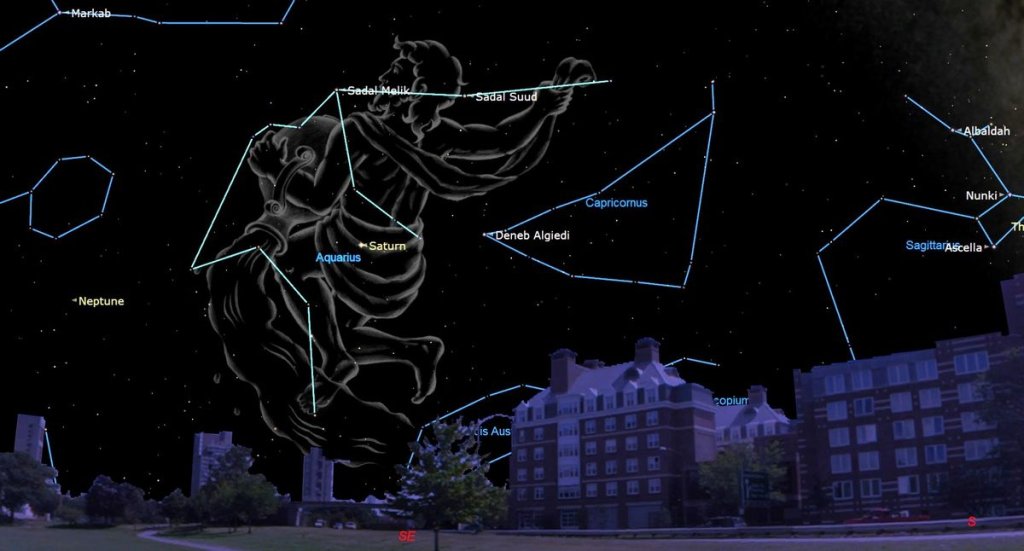Saturn makes for an excellent skywatching target this weekend, thanks to its current position in the solar system.
The ringed gas giant will reach opposition, meaning it will be situated directly opposite from the sun with Earth in the middle. Around the same time, Saturn will reach perigee, its closest approach to Earth, according to In-The-Sky. The combination of these two celestial events means Saturn will appear at its biggest and brightest this weekend. The planet should remain visible through February 2024.
For skywatchers in North America, look to the east-southeast just after sunset to find Saturn in the Aquarius constellation. Within a few hours, the ringed planet should be fairly high in the sky. It will reach its highest point around midnight local time on Sunday (Aug. 27), while the exact moment of opposition will occur a few hours later, around 4:20 a.m. EDT (0820 GMT) on Sunday.
Related: Night sky, August 2023: What you can see tonight [maps]
Want to see Saturn’s rings for yourself? We recommend the Celestron Astro Fi 102 as the top pick in our best beginner’s telescope guide.
At the moment of opposition, Saturn will reach magnitude 0.4, its brightest for 2023. (Brighter objects have a lower magnitude; the full moon, by comparison, has a magnitude of around -12.6, according to NASA.) This means Saturn should be easily visible to the unaided eye as a bright, non-flickering orb in the sky.
However, viewing Saturn through binoculars should reveal more detail and bring out the pale yellow color of the planet. Under the right conditions, some high-power binoculars could even begin to bring out faint traces of Saturn’s rings or even its largest moon, Titan.
Through a telescope, however, Saturn’s rings should be clearly apparent. The gas giant’s rings are currently beginning to tilt more on-edge toward Earth, and will continue to do so through 2025, according to NASA. That makes this weekend an optimal time to catch a glimpse of one of the best night sky targets available to most backyard skywatchers.
If you’re hoping to catch a look at Saturn at opposition or the next big night sky event, our guide to the best binoculars and the best telescopes can help you find the gear you need.
And if you’re looking to take photos of these celestial objects or the night sky in general, check out our guide on how to photograph the moon or how to photograph the planets, as well as our best cameras for astrophotography and best lenses for astrophotography.
Editor’s Note: If you get an awesome picture of Saturn at opposition and would like to share it with Space.com’s readers, send your photo(s), comments, and your name and location to spacephotos@space.com.

